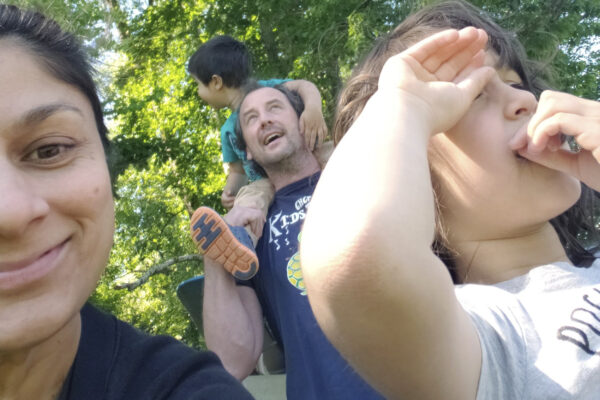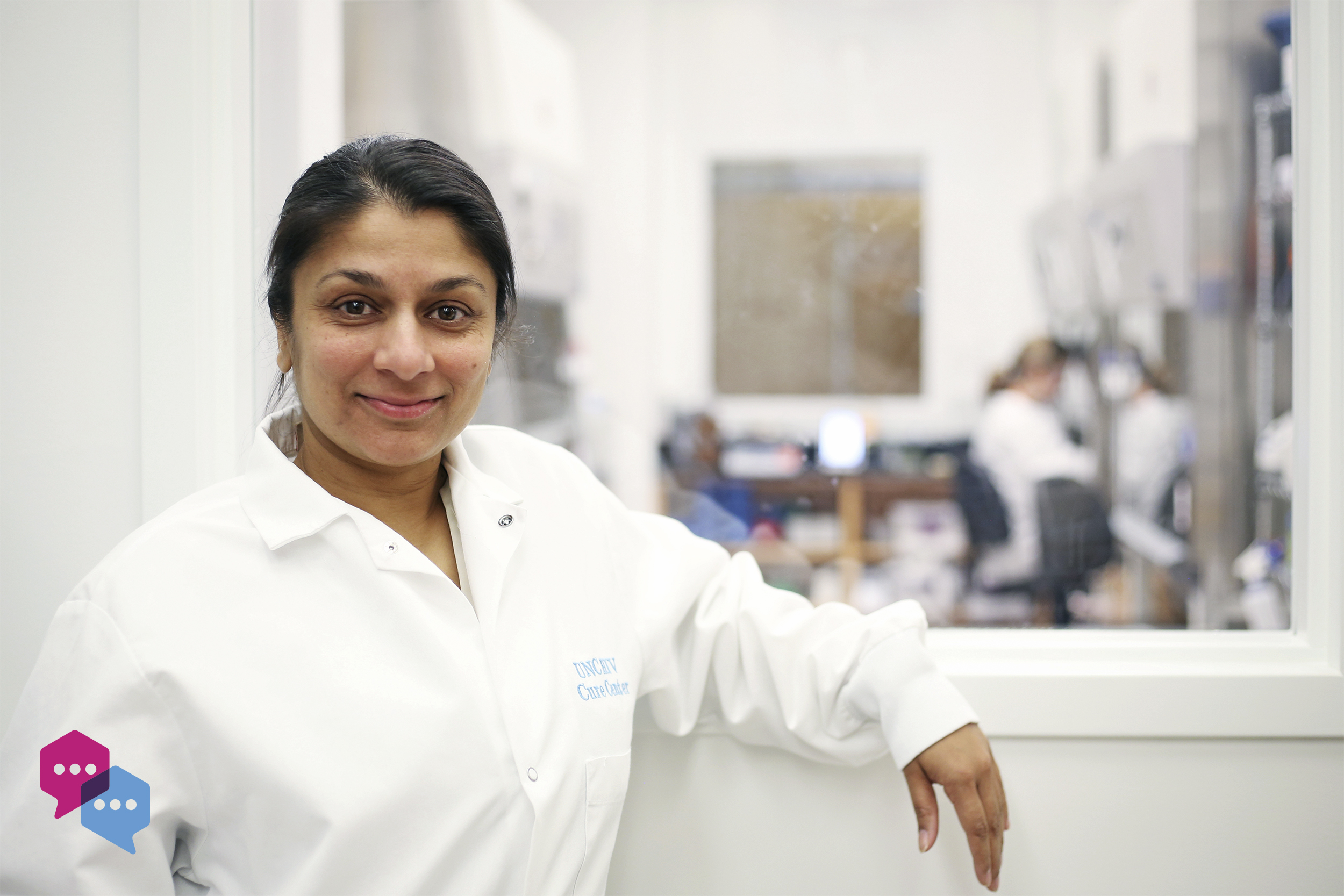Q: When you were a child, what was your response to this question: “What do you want to be when you grow up?”
A: I think at different times I wanted to be an architect — like Mr. Brady from “The Brady Bunch” — a marine biologist, or a paleontologist.
Q: Share the pivotal moment in your life that helped you choose your field of study.
A: While working on parallel degrees in law and science at the University of Queensland in Australia, I was listening to a lecture given by molecular biologist John Mattick, who described his view of the future of scientific research and medicine. He felt that novel technology and whole genome sequencing would become routine and be used to predict disease susceptibility, enabling personalized medicine. That week, I seriously considered dropping out of my law degree so I could focus on science. In the end, I still completed both. Tellingly, I remember little to nothing of the law degree.

Goonetilleke enjoys spending time with her husband and two children. “I like that we’re all looking in different directions [here],” she says. “It very much reflects us.”
A: In science, the toughest challenges are not the biology — that’s just fun. It’s looking after your research team both career-wise and financially. My first postdoctoral research position was leading immunology for a clinical vaccine trial. This involved overseeing a team of five people at very different skill levels. What I learned, through some trial and error, was that the best research results and environment come from tailoring mentorship and expectations to the individual.
Q: Describe your research in 5 words.
A: T cells to the rescue.
Q: What are your passions outside of research?
A: I think it’s important to enjoy life, but that can be simple things liking breaking bread with friends and dancing with your children — both of which I do a lot.


